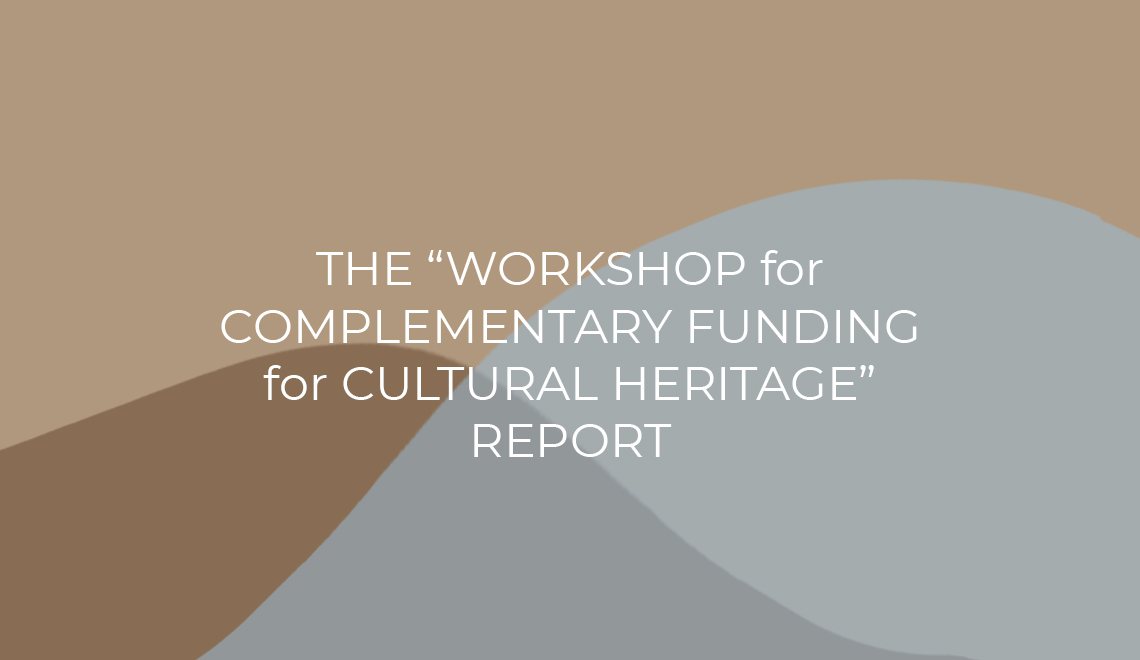
The current economic downturn has led to an important cut in funds for culture in many Member States. To ensure financial stability and organisation’s resilience, the European Court of Auditors recommended that the Commission “should collect good practices on alternative sources of funding from the Member States [and] explore in coordination with the Member States the possibility to develop a scheme that builds on private sources of funding for heritage sites” .
It is in this and the EC Work Plan for Culture 2019-22 framework that the EC Directorate General for Education, Youth, Sport and Culture organised a set of workshops to identify new and innovative sources of revenues and funding for long term sustainable growth.
For the “Workshop for Complementary Funding for Cultural Heritage” the background paper was finalised by the EENC, after a first draft prepared by DG EAC was shared with the Commission’s expert group on cultural heritage, whose members contributed with two rounds of comments and suggestions. It highlights that, since the Work Plan for Culture 2019-22 does not provide any definition of "alternative funding", the term "complementary" is used instead of "alternative" financing, indicating how these instruments (either public-private or private, or at local, regional, national and EU level (grants, subsidies, public investments in infrastructures, sponsorship, etc.) complement, rather than substitute, public financial support. The report also collects the best practices and lessons learned from all the workshops carried out but also from research: “Alongside direct public support, governments can support the cultural heritage sector by encouraging corporate, institutional and private agents’ active involvement in the promotion and safeguarding of cultural heritage”
The complete “Workshop for Complementary Funding for Cultural Heritage” report is now also available on the sections:‘Publications’ and ‘Sustainability in Cultural Heritage’.
